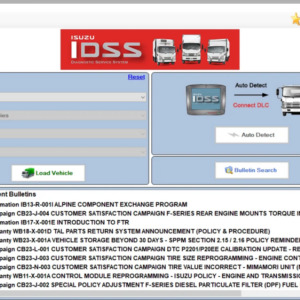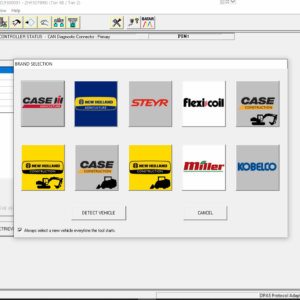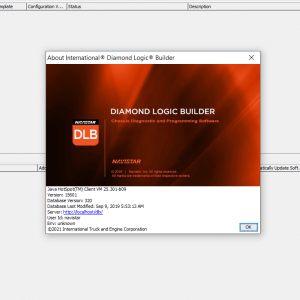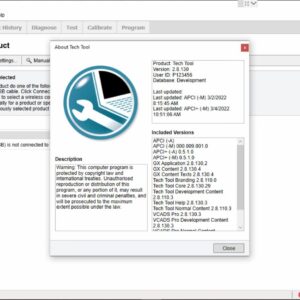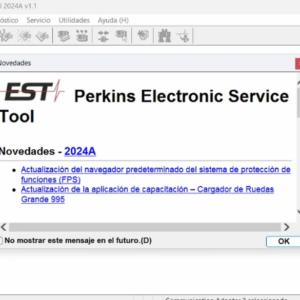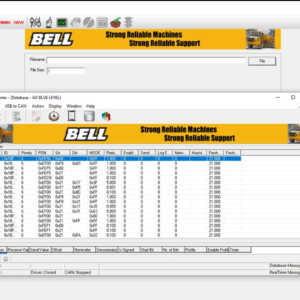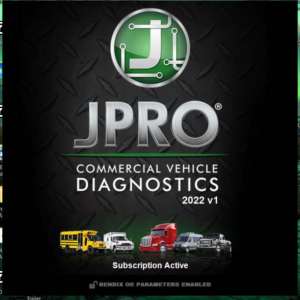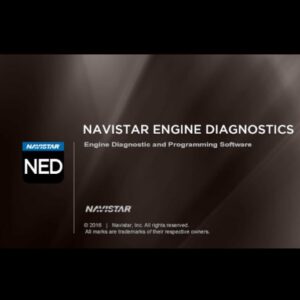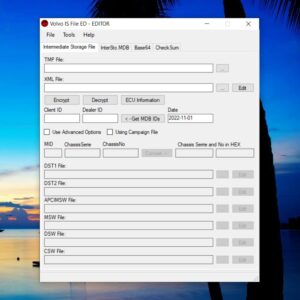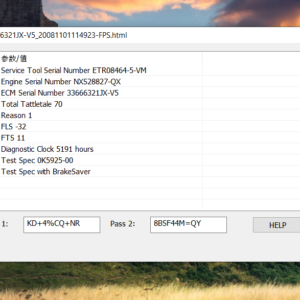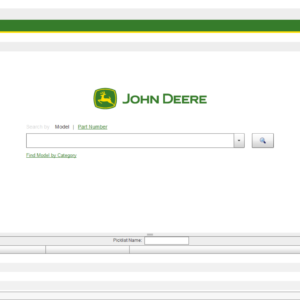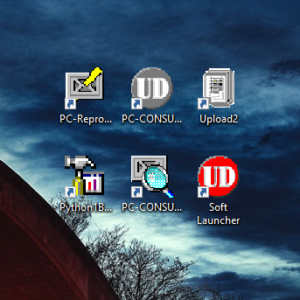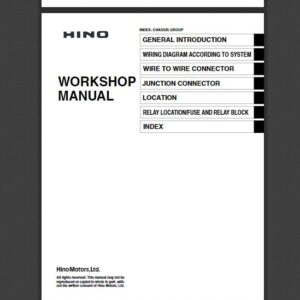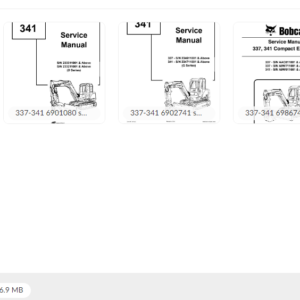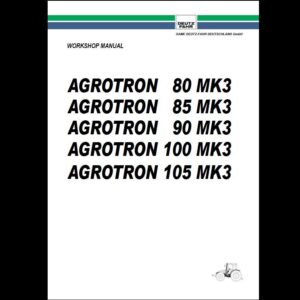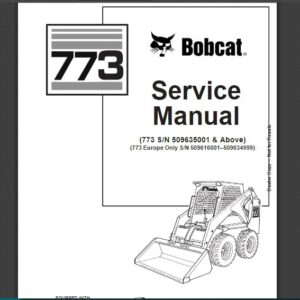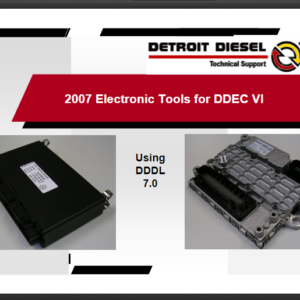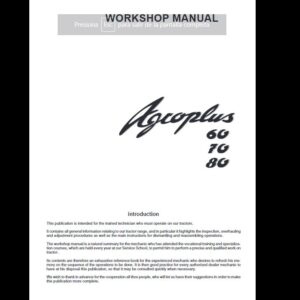Allison 1000 & 2000 Gen 4 Fault Codes: P0875 Transmission Reverse Pressure Switch Circuit Malfunction
Allison 1000 & 2000 Gen 4 Fault Codes: P0875 Transmission Reverse Pressure Switch Circuit Malfunction
CIRCUIT DESCRIPTION:
The Pressure Switch Manifold (PSM) is a multiple switch assembly made up of three normally open (N/O) and one normally closed (N/C) pressure switches. Fluid pressure is supplied to the reverse pressure switch, holding it open, when the manual selector valve is in any position except reverse. When the manual selector valve is moved to Reverse, pressure to the reverse pressure switch is cut off, allowing the switch to close.
CONDITIONS FOR RUNNING THE DTC:
1. The components are powered and ignition voltage is greater than 9V and less than 18V (12V TCM) or greater than 18V and less than 32V (24V TCM).
2. Engine speed is greater than 200 rpm and less than 7500 rpm for 5 seconds.
3. TFT is greater than 0°C (32°F).
4. The hydraulic system is pressurized.
5. DTC P0708 is not active.
CONDITIONS FOR SETTING THE DTC:
DTC P0875 sets when P (Park), N (Neutral), or a forward range is selected and the reverse pressure switch state remains in the mechanically closed/electrically ON position for a period of time that is calibration dependent.
ACTION TAKEN WHEN THE DTC SETS:
When DTC P0875 is active, the following conditions will occur:
1. Calibration Dependent – The transmission will either lock-to-neutral or shift to 3rd or 5th range.
2. If the shift selector is moved to N (Neutral), the transmission will shift to neutral.
3. If the shift selector is moved to R (Reverse), the transmission shifts to reverse.
4. If the shift selector is moved to a forward range or reverse and the transmission is compromised by overspeeding or direction change, the transmission shifts to neutral. If an output speed fault or NSBU fault is present when this test fails, then hydraulic default is implemented.
DTC P0875 is stored in TCM history.
The CHECK TRANS light illuminates on the second occurrence.
The TCM freezes shift adapts (DNA).
The TCM inhibits TCC engagement.
CONDITIONS FOR CLEARING THE DTC/CHECK TRANS LIGHT:
A Scan Tool may be used to clear the code from the TCM history. The TCM automatically clears the DTC from the TCM history if the vehicle completes 40 warm-up cycles without the DTC recurring.
DIAGNOSTIC AIDS:
Inspect the wiring for poor electrical connections at the TCM. Look for the following conditions:
1. A bent terminal.
2. A backed-out terminal.
3. A damaged terminal.
4. Poor terminal tension.
5. A chafed wire.
6. A broken wire inside the insulation.
When diagnosing for an intermittent short or open, massage the wiring harness while watching the test equipment for a change. It may be necessary to check for shorting to ground at individual wires within a harness to isolate an intermittent condition. Refer to Wire Check information.
You may have to drive the vehicle in order to experience a fault. Use the data obtained from failure records to determine transmission range and/or certain vehicle operating variables such as temperature, run time, etc. This data can be useful in reproducing the failure mode when the DTC was set.
This DTC could indicate a hydraulic leak path exhausting pressure from the reverse pressure switch.
Multiple inactive pressure switch DTCs may be due to a plugged Control Main Filter. Ensure that the initial 8000 km (5,000 mile) filter change was performed. To help reduce multiple pressure switch DTCs from setting due to a plugged control main filter or slow pump prime, later software levels have a time delay up to 30 seconds before a pressure switch test is enabled.
If a P0875 (previously P1713) is shown in failure records as being logged first on the failure list followed by P0872 (previously P1711) combined with P0708, this generally indicates a NSBU internal switch failure. Often when the codes are cleared they do not return. This may be due to moisture that was present at the time the code was logged, causing an internal short. Inspect the NSBU switch linkage for proper adjustment and for signs of damage. If the shift linkage is properly adjusted and no damage is noted, replacement of the switch may be indicated.
$50.00
-
Volvo Premium Tech Tool PTT 2.8.130 Diagnostic Software 04.2022 ACPI ( 1 PC )
Trucks software $143.00Rated 0 out of 5
-
JPRO 2022 v1 Commercial Vehicle Diagnostics V1 Software Download & Installation Service ( 1 PC )
JPRO $94.00Rated 0 out of 5 -
Navistar international OnCommand service information 2018 software trucks
Navistar $50.00Rated 0 out of 5 -
Volvo Intermediate Storage File Encryptor/Decryptor (Editor) VISFED 0.3.2
Trucks software $35.00Rated 0 out of 5 -
John Deere & Hitachi Parts ADVISOR 2020 [08.2020] Offline DVD Spare Parts Catalog
John Deere $120.00Rated 0 out of 5 -
DOWNLOAD NISSAN UD DIESEL PC-CONSULT DIAGNOSTIC 1.1.13 & PC-REPROMASTER 1.2.0
NISSAN UD $100.00Rated 0 out of 5
Related products
-
Allison 1000 & 2000 Gen 4 Fault Codes: P0218 Transmission Fluid Over Temperature Condition
1000 & 2000 Gen 4 $50.00Rated 0 out of 5 -
Allison 1000 & 2000 Gen 4 Fault Codes: U2104 CAN Bus Reset Counter Overrun
1000 & 2000 Gen 4 $50.00Rated 0 out of 5 -
Allison 1000 & 2000 Gen 4 Fault Codes: P0876 Transmission Reverse Pressure Switch Circuit Stuck Open
1000 & 2000 Gen 4 $50.00Rated 0 out of 5 -
Allison 1000 & 2000 Gen 4 Fault Codes: P2810 Solenoid G Electrical
1000 & 2000 Gen 4 $50.00Rated 0 out of 5 -
Allison 1000 & 2000 Gen 4 Fault Codes: P0123 Pedal Position Sensor Circuit High Voltage
1000 & 2000 Gen 4 $50.00Rated 0 out of 5 -
Allison 1000 & 2000 Gen 4 Fault Codes: P0872 Transmission Pressure Switch Solenoid E Circuit Stuck Closed
1000 & 2000 Gen 4 $50.00Rated 0 out of 5 -
Allison 1000 & 2000 Gen 4 Fault Codes: P2773 Torque Control Request Ignored – ECM/TCM
1000 & 2000 Gen 4 $50.00Rated 0 out of 5 -
Allison 1000 & 2000 Gen 4 Fault Codes: P2771 Four-Wheel Drive Switch Circuit
1000 & 2000 Gen 4 $50.00Rated 0 out of 5 -
Allison 1000 & 2000 Gen 4 Fault Codes: U0073 CAN Bus Reset Counter Overrun
1000 & 2000 Gen 4 $50.00Rated 0 out of 5 -
Allison 1000 & 2000 Gen 4 Fault Codes: P1688 Unmanaged Engine Torque Delivered To TCM Signal
1000 & 2000 Gen 4 $50.00Rated 0 out of 5 -
Allison 1000 & 2000 Gen 4 Fault Codes: P0870 Transmission Pressure Switch Solenoid E Circuit
1000 & 2000 Gen 4 $50.00Rated 0 out of 5 -
Allison 1000 & 2000 Gen 4 Fault Codes: U1041 J1850 (Class 2) ABS Controller State of Health Failure
1000 & 2000 Gen 4 $50.00Rated 0 out of 5 -
Allison 1000 & 2000 Gen 4 Fault Codes: P1779 Engine Torque Delivered To TCM Signal
1000 & 2000 Gen 4 $50.00Rated 0 out of 5 -
Allison 1000 & 2000 Gen 4 Fault Codes: U0032 J1850 (Class 2) Serial Data Communication Link High
1000 & 2000 Gen 4 $50.00Rated 0 out of 5


